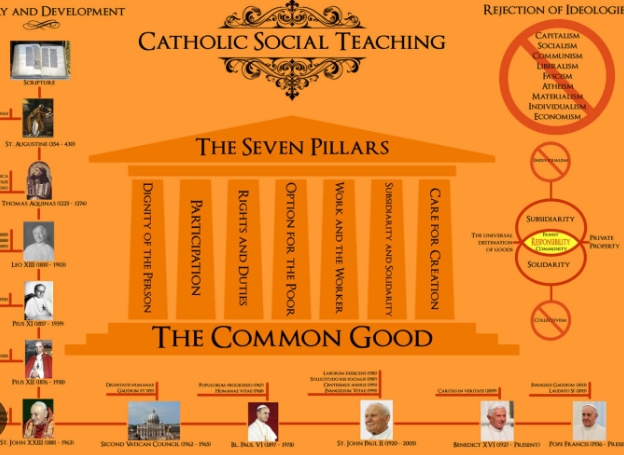Catholic Social Teaching is a body of doctrine developed by the Catholic Church that addresses issues of social justice and the common good. Here, we will explore the principles that guide this important aspect of Catholic theology.
1. Dignity of the Human Person
The first principle of Catholic Social Teaching is the inherent dignity of every human being, regardless of race, gender, or socioeconomic status. This principle emphasizes the worth and value of each individual as a unique creation of God.
2. Common Good
The Catholic Church teaches that the well-being of society as a whole is essential to the flourishing of individuals. The common good requires that all members of society have access to the resources and opportunities they need to live fulfilling lives.
3. Solidarity
Solidarity is the principle that calls for a bond of unity and cooperation among all people, especially those who are marginalized or suffering. It emphasizes compassion, empathy, and a commitment to working together for the greater good.
4. Subsidiarity
Subsidiarity is the principle that holds that decisions should be made at the most local level possible, in order to empower individuals and communities to take responsibility for their own well-being. This principle emphasizes the importance of decentralization and giving power back to the people.
5. Option for the Poor and Vulnerable
The Catholic Church teaches that special consideration should be given to those who are most in need, such as the poor, the marginalized, and the vulnerable. This principle emphasizes the importance of advocating for social and economic justice for those who are often overlooked or mistreated.
6. Care for God’s Creation
Catholic Social Teaching includes a strong emphasis on environmental stewardship and the protection of God’s creation. This principle calls for responsible stewardship of the earth, and a commitment to sustainable practices that preserve the environment for future generations.
7. Promotion of Peace and Nonviolence
The Catholic Church emphasizes the importance of promoting peace, reconciliation, and nonviolence in all aspects of society. This principle calls for dialogue, understanding, and a commitment to resolving conflicts peacefully and justly.
In conclusion, Catholic Social Teaching offers a comprehensive framework for addressing social justice issues and promoting the common good. By upholding principles such as the dignity of the human person, solidarity, and care for the environment, the Catholic Church seeks to create a more just and compassionate world for all.

